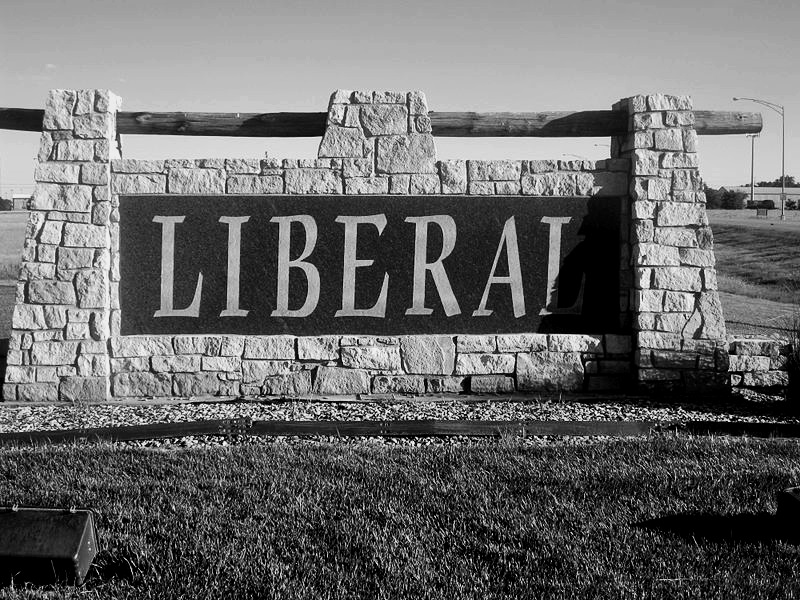Many extraordinary events took place in 2020. What do you think about how they will reshape the world in the rest of the decade?
In light of the global pandemic, I see three significant changes in the making. First, the preparedness of the state for emergencies will improve. Health systems were unprepared for such a health crisis, while the state emergency infrastructure was underdeveloped and in poor condition.
Going forward, the political elite will need to learn a lesson from past failures and strengthen the health system and provide a systematic overhaul of the state’s emergency infrastructure to make it more resilient and responsive when the next health emergency strikes.
The second significant change that I predict is how we will interact with other people at work, in schools, with the public sector, or with friends and family. As such, many employers are finally giving a fair chance to remote work. Likewise, the educational systems have made a massive leap in being more flexible and in tune with advances in the usage of computers and video communications.
These changes are benefiting not only students but also teachers and parents. Also, we see many countries finally being bold enough to follow Estonia and other countries that have already made significant advances in converting public services into flexible electronic solutions for their citizens.
Finally, many people have become highly comfortable using video apps to stay in touch with their friends and family members. Being solely reliant on personal meetups and occasional telephone calls has been substituted with regular, casual, and cost-friendly video calls with friends and family members.
Third, we will most likely see descaling in international trade even after the pandemic. This step away from globalization is not due to the recent rise of nationalism and parochialism on the extreme left across the world, but rather to a change in how people who are in favour of free trade and movement will engage in economic activities in the future.
The pandemic has changed their perspective on the risk taken when their supply chains are long and global. Thus, it is prudent for all players to depend more on local or regional producers and diversify their own economies to meet the needs within their own countries when the next crisis strikes. Such a shift in economic activity will unquestionably entail higher costs to the consumer and all producers along a given supply chain. However, it will also boost local producers and increase employment in the local economy.
The pandemic caused by the covid-19 put a lot of power in the hands of governments. How do you think this will afflict our individual, economic and political liberties in the post-pandemic period?
Notably, the Covid-19 pandemic erupted amidst a deep crisis facing liberal democracies. Attacks on democracy have been increasing over the past decade, with the main manifestations being the rise of nationalism, the politics of polarization, and the ensuing upsurge of illiberal democracies.
However, the COVID-19 pandemic is demonstrating that liberal democracy, with its free and open markets, is more resilient and capable of handling a health crisis than other political systems with weaker respect for and protection of human rights and freedoms. For this reason, liberal democracy could come out of the global pandemic even more potent than it was going into it.
Proponents of anti-capitalistic and anti-globalisation ideas claim that the pandemic proved inefficiency of free market and globalisation. What is your response to this?
I have to disagree with such a claim. As mentioned earlier, the pandemic has exposed the vulnerabilities and unpreparedness of health systems and state emergency institutions. However, when we analyse the effect that free markets and free trade have on the current situation, we see that they have dampened the effects of the pandemic and are predicted to enable faster recovery.
The critical element in these equations is that these countries are more resilient and capable of handling a health crisis than countries with lower levels of economic freedom. This claim is supported by empirical findings that a higher level of economic freedom leads to a greater ability to adjust to shocks by reducing frictions in the reallocation of resources and the reorganization of economic activity.
Further, economic freedom and property rights strengthen the conditions and incentives for dynamic innovation in healthcare and encourage the economy not only to adapt quickly to an emerging public health crisis, but also to be better prepared for the next one. Economic freedom should therefore be just as high a priority during a pandemic as it is, or ought to be, in better times.
Are you concerned that those voices are becoming louder and that anti-capitalistic sentiments are more robust than those in the pre-pandemic world? There have been much more voices for higher involvement of the government in economic activities. Will this bring any good to people and the overall progress?
In times of great national uncertainty, the government is called upon to act, and the present pandemic is no exception. However, policymakers should keep in mind that they are not only expected to impose and enforce proportionate legal measures to contain the spread of the Covid-19 virus and protect lives, but also to maintain or even strengthen an institutional environment with secure rights and freedoms that will enable the country to better cope with the crisis and recover from it more quickly afterward.
While governments have indeed accepted a more active role in the economy during the pandemic, there is no sign that those that uphold economic freedom do not take these COVID-19-related measures as strictly temporary and tailored specifically to address the pandemic and its consequences. As such, these countries have not actually shifted away from adherence to economic freedom and toward government overreach that stifles innovation, entrepreneurship, and wealth creation.
In The Economist’s 2018 special report on liberalism, it was written: “Success has turned liberals into a complacent elite. It is time to rekindle the spirit of radicalism”. Do you think liberals worldwide are wandering without purpose and tend to live upon successes from the past?
For hundreds of years, liberals have been fighting for individual freedom, open markets, the rule of law, and democracy. Then, after the world observed a peak in the commitment to liberal values and institutions in the early 2010s, conditions on the ground changed. Since then, the world has been moving away from liberalism. For whatever reason, our lives are not better now. Our society has to find a path back.
Do you see radicalism as an approach to rekindle the spirit of liberalism in the 21st century?
It all depends on what people understand by such an approach.
What should be the liberal’s response to the increase in state power?
When an increase in state power comes at the expense of human rights and freedoms, liberals should oppose such government actions. As English political philosopher John Locke wrote: “The end of law is not to abolish or restrain but to preserve and enlarge freedom.”
What could be the foundation of the new liberalism1 in the post-pandemic world?
It should remain human liberty and equality of opportunity, hand in hand with the rule of law, limited government, open competition, and democracy.
In the USA, which has been considered a bastion of capitalism and freedom for many decades, we witnessed some unbelievable events in the past months. In light of recent events, do you think American pro-liberal2 forces have the power and desire to keep the pace and battle against radical left-wing and right-wing politics in the USA? Additionally, what are lessons the Republican Party should learn from their endeavours with Mr Donald Trump? Do you think that we can expect the separation of the Republican Party or will the unity, which will eliminate the radical right’s malicious influence, prevail?
Those Americans that remain supporters of free trade, open competition, and civil liberties are being increasingly pushed to the curb. Under President Trump’s leadership, the Republican Party has visibly moved away from its long-standing support of economic freedom, globalization, the rule of law, and economic cooperation with international partners.
At the same time, the Republicans have learned two lessons in the last four years. One is that there is a sizable number of voters that will vote for them as long as they keep advocating for nationalism, opposing immigration, and favouring domestic production. These voters either falsely believe that protectionism leads to job growth and economic prosperity, or do not care about it as long as they get to enjoy the economic benefits of restrictions on the economic freedom of their fellow countrymen in the short-term. The second lesson that they have learned is that once you sell your soul to whatever entity, it is hard to get it back.
The European Union is not immune to similar problems. What do you see as the most critical challenges for the EU in the forthcoming years?
Indeed, Europe is experiencing its own share of attacks on liberal democracy. Most notably, Hungary and Poland are seeing the rise of nationalism, attacks on media freedom, a weakening of the rule of law, attacks on civil rights, etc. With this ensuing upsurge of illiberal democracies, many Europeans have become engaged in bringing back liberal and democratic values and institutions.
On the other hand, Europeans now have new worries. Putting the health crisis and emerging illiberal tendencies aside, EU member states’ deficits that are largely driven by age and demographics are being exacerbated by the Covid-19 relief packages. In this situation, increased deficits will further hinder governments’ fiscal capacity to meet its previously existing commitments.
Will the EU’s hunger for regulations of the market destroy its global competitiveness?
Instead of overregulation, the EU needs to further strengthen and support the European single market in which the free movement of goods, services, capital and persons is assured, and in which citizens are free to live, work, study and do business. At the same time, the EU member states need to consider national economic policies that will emphasise cultivating sectors and technologies that will not only be able to participate in global supply chains, but will also compete for global market share.
Many countries in the EU starts cooperating and nourishing relationships with authoritarian regimes such as Russia or China. Could this damage the fundamental pillars of the EU?
The EU is increasingly standing up to human rights abuses in Russia, China, and other authoritarian regimes. Notably, the EU has recently agreed on a list of the primary rights abusers worldwide: China, Russia, Eritrea, Libya, North Korea, and South Sudan. For these countries, the EU has approved a new package of sanctions consisting of asset freezes and travel bans.
Further, EU businesses regularly conduct human rights due diligence by identifying and responding to human rights risks in their own operations and along supply chains connected to countries involved in notable human rights abuses. However, the COVID-19 pandemic has prevented businesses from visiting suppliers and conducting on-site audits, making the identification and controlling of adverse human rights impacts in the supply chain ever more challenging.
What should be in the EU’s politicians’ focus when they think about the Western Balkans region? What do you see as significant obstacles for the Western Balkans’ progress?
Weak rule of law and a high level of corruption.
The article was syndicated by 4Liberty.eu Network
 The interview was conducted by and published at Mreža za globalne komunikacije (Global Communication Network) in Montenegro
The interview was conducted by and published at Mreža za globalne komunikacije (Global Communication Network) in Montenegro
1 New liberalism is just liberalism. But we use this form to distinct ourselves in Montenegro from Old liberals, i.e. Liberal Alliance of Montenegro and Liberal Party of Montenegro, and Montenegrin School of Economics.
2 Here liberal means in the context of the European understanding of liberalism, or libertarianism in the USA.




